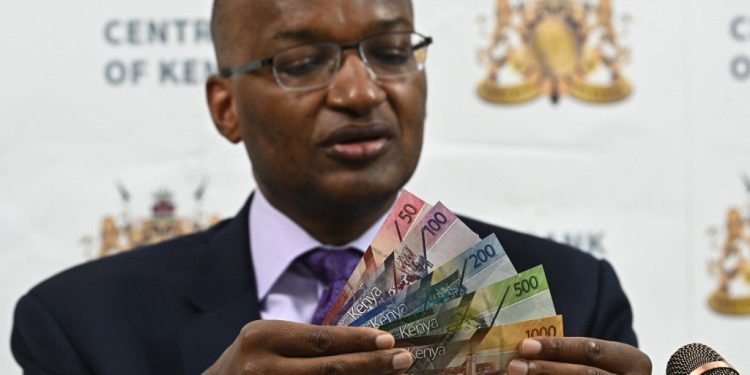The Central Bank of Kenya is in the process of demonetizing 217.6 million pieces of the KSh1,000 old series notes. According to the Central Bank governor Dr. Patrick Njoroge, the notes will cease being legal tender on the 1st of October 2019.
Dr. Patrick Njoroge said the reason for the demonetization is to counter the rising cases of illicit financial transactions and the emerging counterfeit notes. There have been reports of odd transactions in the banking sector which have raised concern among Kenyans. The CBK boss said that they had to act quickly to stop the illegal transactions.
“You don’t wait until the house is already burning before you use the fire extinguisher. When you smell smoke, grab the extinguisher and begin to deal with it,” said the governor.
Additionally, the Kenyan Shilling is widely used in the East African region and beyond. Therefore Kenya’s financial regulator took the arduous task of demonetization to ensure the currency is not tainted by the illegal transactions and counterfeits.
There are, in circulation:
— Central Bank of Kenya (@CBKKenya) June 3, 2019
– 217.6 million pieces of KES 1,000
– 30.8 million pieces of KES 500
– 54.8 million pieces of KES 200
– 126.4 million pieces of KES 100
– 100.5 million pieces of KES 50
– 9.9 million pieces of KES 20
Dr. Patrick Njoroge noted that they borrowed important lessons from India on the demonetization process. India suffered long queues and a decline in economic growth after they withdrew the 500 and 1,000 banknotes from circulation in 2016.
"In the case of India we also that they could have done more in communication"
— Kenyanwallstreet (@kenyanwalstreet) June 3, 2019
CBK Governor @njorogep https://t.co/Ew1ne3LeX4
Lastly, Dr. Njoroge explained that the reason they gave four months for people to exchange the KSh1,000 notes is to allow the people with limited access to banks especially in rural areas to hand in their notes. The governor said that if the notes were withdrawn from circulation immediately, it’s the average people who would be most affected.

“We might see an increase in the velocity of money as corruption money can’t just be taken to the bank they will have to spend it, that would lead to demand induced inflation. Increase in velocity will mean an oversupply of Shilling in the market so it will add downward pressure on the Kenyan currency”
Noted Reginald Kadzutu, the Chief Investment Officer of Nairobi based Fund manager Amana Capital.
Two petitions have since been filed in court challenging the new Generation currency. Kenyan activist Okiya Omtata and East African Legislative Assembly (EALA) MP Simon Mbugua are arguing that there was no public participation in the process and that the inclusion of Jomo Kenyatta violates the law.
However, CBK Governor has dismissed the challenge saying due process was followed in the design and printing of the same.
For those who would wish to exchange between KES 1 million and 5 million;
“People who want to exchange amounts between Sh 1million and Sh 5million will need to go to their own banks. Those who do not have bank accounts and want to exchange this amount will need to contact the CBK. We will then endorse them and they can go to a designated bank branch. People who want to exchange amounts above KES 5 million will need to contact the CBK. ” Added the Governor.
Related; Kenya Unveils New Banknotes, Recalls Old Ksh 1000 notes




